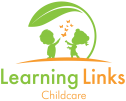Something for the mind
Language and Literacies
Language helps us to enhance our skills to communicate with others. Literacy Development is ability to read and write. Both language and literacy develop through interactions with the people around us.
- Talk to your child about what is happening, the plan for the day.
- Engage in conversations about what you see on your walks and in the environment
- Read books together
- Singing songs
- Nursery Rhymes
- Question and answer board games
- Te Reo Singalong with Sharon Holt
- Listent to stories – a collection of free children’s audio books. All written and produced in New Zealand
- Retelling and creating own stories with props.
- Indoor scavenger hunt
- A toy with wheels
- A book with the first letter of your name in the title
- A pair of matching socks
- Something that is soft
- Something that is round
- A photo of someone you love
- Something you love to play with
Sustainability
Learning about our environment, becoming kaitiakitanga – guardians of the environment.
- Plant a garden
- Grow food, cook it and eat it – garden to plate concept.
- Grow seeds and find out how seeds grow
- Make a bird feeder
- Working with others to sort out the recycling
- Look in your local stream, trees or bush – what creatures and plants live there.
- Reuse items for crafts
- Read books about the earth
- Compost
- Be water wise
- Connect with the environment – lie down close your eyes and listen for the sounds
- Look for living insects and bugs in your garden – research how they help ie worms and bees.
- Farm Food 360º – virtual farm and food tours
- 15 sustainability activities for kids
https://livingmontessori.com/sustainability-activities-for-kids/
Science Websites
Curiosity is the key when it comes to science. Getting children interested in how things work. It involves trying, testing and observing what happens.
- Activities related to plants and animals
https://www.teachpreschoolscience.com/life-science-plants-and-animals.html
- Read books about animals, weather, environment
- Meet Zoo Animals online
Australina Zoo You Tube
https://www.youtube.com/channel/UCPsaZFIleCwQT7dAn-5oJdQ
Melbourne Zoo – Live Animal Encounters
https://www.zoo.org.au/animal-house/
- Museum
- Shadows
- Trace shadows using chalk on concrete
- Use paper, put toy animals on then trace shadow
- Make your shadow big / small, can you hide your shadow
- Shadow tiggy or chasing shadows
- Bug hunts
- Dressing for the season – have pile of clothes and have pictures of different seasons (sun / rain / wind… ) and sort clothes and dress for the season selected.
- Cloud watching
- Penguin WebCams from around the world
http://penguin.net.nz/viewing/webcams.html
- National Geographic Kids
https://www.natgeokids.com/nz/
- Build a fort
- Pitch a tent and camp in backyard
- Experiments
https://handsonaswegrow.com/science-experiments-preschoolers/
- Floating and sinking – find items in the house or garden. Get a bucket of water and guess which ones will float / sink and then experiment and test.
Maths
In the early years we aim to expose children to a range of mathmatical concepts – not just numbers. It is also about patterns, measuring, sorting, locating, counting, grouping and shape.
- Outdoor scavenger hunts
- 5 leaves that look different
- A stick that is longer than your hand
- A flower
- 10 blades of grass
- Something that is brown
- Something that is heavy
- Something that is light
- A piece of trash you can recycle
- An item smaller than your thumb
- Board games – encourages counting and growing knowledge and understanding of numbers.
- Card games – pairs, snap
- Sorting – toys into appropriate baskets
- Sharing food ie need to divide into thirds so all three get some…
- Pouring and comparing drinks
- Stories with numbers
- Measuring distances and sizes using various objects like steps, stick…
- I spy something beginning with green…
- Puzzles
- Walking with a map
- Counting nature ie birds…
- Baking
- Matching socks in the washing
- Simon says go under the table, stand on a chair, go around the box…
Arts
The arts is used as a collective term in ECE for music, dance, visual arts and drama.
- Singing and dancing to your favourite songs
- Learning cultural dances
- Retelling a story with actions
- Drawing, Painting
- Painting with water
- Painting rocks
- Playdough – see recipes
- Messy play – see recipes
- Crafts for families – join the painted rocks craze
https://www.kiwifamilies.co.nz/2017/02/painted-rocks-craze/
- Making cards for people in the community
- Weaving with natural resources
- Make musical instruments from natural resources
- Multicultural art ideas
https://kinderart.com/category/art-lessons/multic/
- Nature Art
Digital Technologies
We need to accept that digital technologies are apart of our children’s lives for getting information and communicating. We need to support children to understand social skills needed to use technology wisely, safely and respectfully.
- Message family outside your bubble
- Online safety tips for parents from Netsafe
https://www.netsafe.org.nz/advice/parenting/
- Research to help answer questions your children may answer.
- Create a video of your telling a story or reading a story, dancing, sharing some of your play at home. Rewatch or share with your teachers on Storypark
- Take photos showing snapshots of your time at home to share on Storypark
- Educational games
